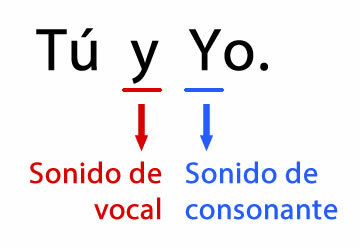Example of Gross National Product (GNP)
Finance / / July 04, 2021
The gross national product (GNP) It is a concept of economy that refers to all the wealth generated in goods and services by the inhabitants and companies of a country, for a specified period, generally one year, regardless of the places where they carry out these economic activities.
GNP is an acronym to refer to the Gross National Product or Gross National Income, and it is a concept used in economics, especially in the branch called macroeconomics, which studies the factors economic at country and regional levels, and that is the expression in monetary values, of all products and services that are produced by people and companies of a country, during a period; the most usual is that the period is one year, although quarterly and semi-annual periods are also used. These economic activities can be carried out in your country or in a different country.
People can produce goods and services, and can also contribute monetary capital to carry out economic activities, either personally or as part of a business group. These economic movements can be carried out within their territory of origin or in a foreign country.
Here it is necessary to make the distinction between GNP and GDP. The Gross National Product refers to the place of origin of the people and companies that generate wealth, regardless of the territory where they carry out their activity economic, while the Gross Domestic Product refers to the territory where wealth is generated, regardless of the origin of the people or companies that they generate.
Economic activities that are considered GNP
In its most generic aspect, Gross National Product is considered to be all wealth produced or obtained by the inhabitants of a country and by their companies at any level of economic activity.
Among the inhabitants, nationals are those who were born in a territory, and those who being foreigners, they have renounced their nationality of origin and become naturalized as inhabitants of that country.
Regarding legal entities, that is, companies, all companies whose training registry and its main offices are in one country, even if they carry out their activities in another country.
Thus, for example, the wages of a Mexican worker residing in an Asian country are considered part of the Gross National Product of Mexico. The same happens when a Mexican owns participation by investment or shares in a foreign company, the profits that he obtains are part of the Gross National Product.
At the company level, the country of origin of the company determines where the GNP corresponds. A Korean company, for example Samsumg or Daewoo, has assembly plants all over the world. In the case of Mexico, the television assembly companies are located in the Bajío region. The wealth generated is part of Mexico's GDP, but since the company is Korean, those profits are part of Korea's GNP. Likewise, if a Mexican company has participation in a foreign company, the profits obtained by the Mexican company will be part of the GNP.
Relationship between GNP and GDP
In closed economic systems, where both production and investment are only carried out by national entities (public and private), as in North Korea, GNP and GDP are equal.
In Open Economies, where competitiveness is sought and companies can invest both in their place of origin and abroad, seeking better conditions and cheaper skilled labor, a calculation is made that ideally should result in GDP and GNP being zero.
To calculate the Gross National Product Amount, the following operations are carried out:
The amount of what nationals will earn for their operations (sales, industries, labor) abroad is calculated. (Gn)
Then the amount of what foreigners will earn for their operations in the national territory (Ge) is calculated
The earnings of foreigners are subtracted from national earnings:
(Gn - Ge)
The result of this subtraction is added to the amount of GDP:
GNP = GDP + (Gn - Ge)
When the values of GDP and GNP are equal, the economy is considered to be in equilibrium.
When GDP exceeds GNP, the country (remember that we are talking about macroeconomics) earns less than what it spends abroad.
When GDP is less than GNP, it means that the country earns more than it spends abroad.



